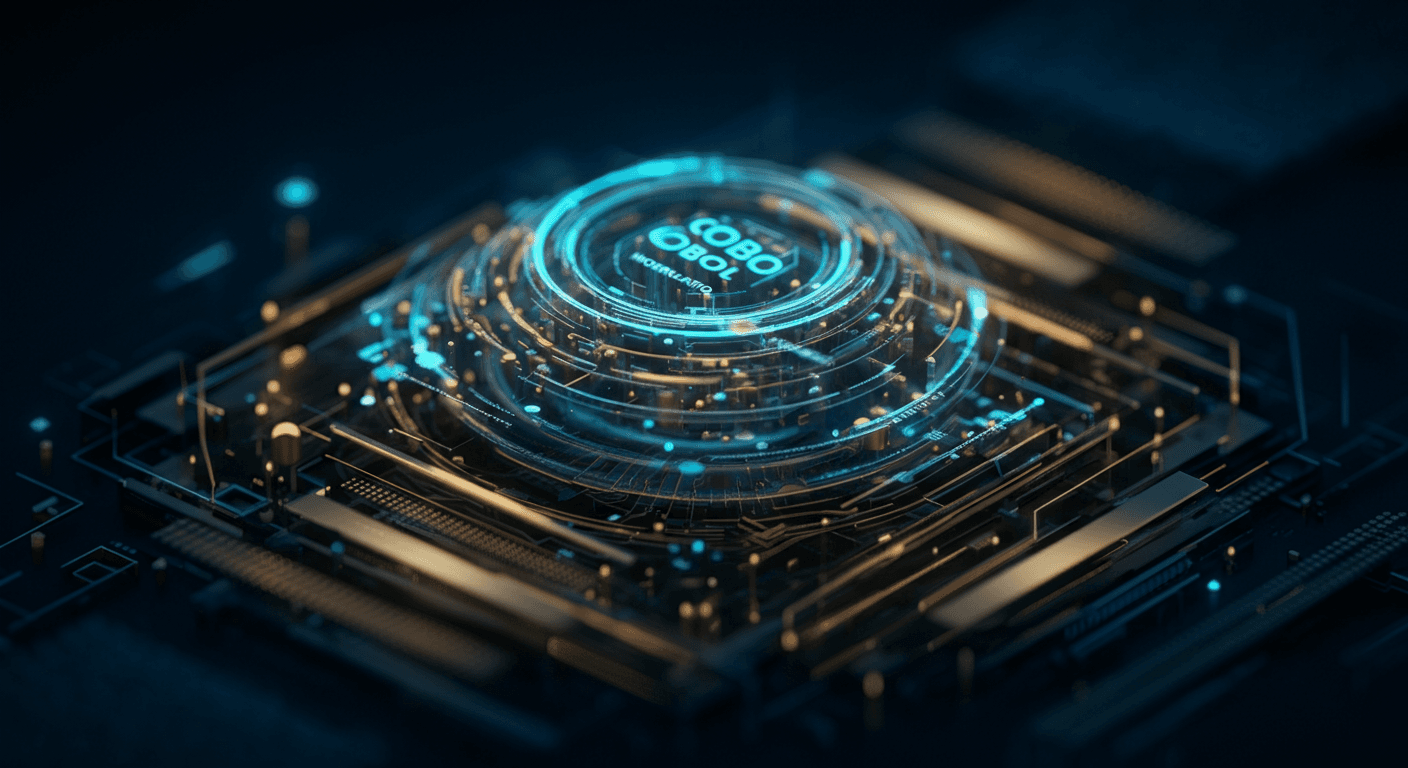AI's Double-Edged Sword: Balancing Progress with Peril

The AI Paradox: Navigating Innovation and Ethical Considerations
Artificial intelligence offers unprecedented opportunities, but also raises critical questions about our future. The AI paradox is this inherent duality: immense potential juxtaposed with significant potential pitfalls.
The Ongoing Debate
“With great power comes great responsibility” – and AI's power is growing exponentially.
The conversation around AI's societal impact is far from settled. We're wrestling with everything from job displacement to algorithmic bias, and the spread of misinformation facilitated by AI. This issue aims to offer a balanced perspective, highlighting both the promise and the peril.
Key Topics We'll Explore

- Bias in Algorithms: How Data Analytics trained on biased data can perpetuate and amplify societal inequalities. For example, consider facial recognition software trained primarily on one ethnicity; its performance suffers dramatically when used on other groups.
- Job Displacement: The potential for automation to reshape the workforce, and strategies for adaptation and reskilling. One growing market is using Code Assistance AI to write, debug, and test code more efficiently, but what impact does that have on junior developer roles?
- The Misinformation Age: The role of AI in creating and disseminating fake news and deepfakes, and the challenges in combating this. The Image Generation tools that produce astonishingly realistic images and videos can be used for good, but what happens when they aren't?
- Ethical Frameworks: Existing and emerging guidelines for responsible AI development and deployment. Ensuring AI aligns with human values requires a multi-faceted approach, and global cooperation.
AI is no longer a futuristic fantasy; it's actively reshaping our world, one algorithm at a time.
AI in Healthcare: Precision and Prediction
AI in healthcare is already improving diagnostics and treatment plans. For instance, AI algorithms can analyze medical images like X-rays and MRIs with incredible accuracy, detecting subtle anomalies that might be missed by the human eye.Imagine an AI assistant that never tires, tirelessly sifting through data to give doctors an edge.
- Drug Discovery: AI is accelerating the discovery of new drugs by predicting the effectiveness of different compounds, significantly reducing the time and cost involved in bringing new treatments to market.
- Personalized Medicine: AI algorithms can analyze a patient's genetic makeup, lifestyle, and medical history to create personalized treatment plans, maximizing effectiveness and minimizing side effects.
- Check out Heidi Health which focuses on women's midlife health, offering personalized information and resources.
Revolutionizing Finance: Smarter and Safer
AI in finance is transforming everything from fraud detection to investment strategies.- Fraud Detection: AI algorithms can identify fraudulent transactions in real-time by analyzing patterns in vast datasets, preventing financial losses and protecting consumers.
- Algorithmic Trading: AI-powered trading systems can execute trades at optimal times, maximizing returns and minimizing risks, though ethical considerations must always be at the forefront.
- Risk Assessment: AI helps financial institutions assess risk more accurately, leading to better lending decisions and reduced defaults.
Transforming Transportation: Autonomous and Efficient
Autonomous vehicles, powered by AI, promise to revolutionize transportation, making it safer, more efficient, and more accessible.- Self-Driving Cars: Autonomous vehicles use AI algorithms to perceive their environment, make decisions, and navigate roads without human intervention, potentially reducing accidents and traffic congestion.
- Supply Chain Optimization: AI is optimizing supply chains by predicting demand, identifying bottlenecks, and improving logistics, resulting in significant cost savings and reduced delivery times.
- Learn more about the concepts with this Guide to Finding the Best AI Tool Directory
AI's rapid evolution promises unprecedented progress, but we can't ignore the potential pitfalls lurking beneath the surface.
The Looming Shadow of Job Displacement
One of the most immediate concerns is AI-driven job displacement. As marketing automation tools become more sophisticated, they could handle tasks previously performed by human marketers. This necessitates a proactive approach to retraining and upskilling, ensuring workers can transition to new roles. The impact is not just confined to marketing roles; all industries will require careful consideration.Unveiling Algorithmic Bias
"Algorithms are opinions embedded in code." - Cathy O'Neil
Algorithmic bias is another critical issue. Machine learning models are trained on data, and if that data reflects existing societal biases, the AI will perpetuate and even amplify those biases. This is particularly concerning in areas like hiring and loan applications. For example, imagine a loan application AI discriminating based on zip code, effectively redlining communities. Learn to prompt engineer to remove bias or at least become aware of it.
The Ethical Minefield of AI Misuse
The potential misuse of AI technologies also raises serious ethical questions. Think about deepfakes used to spread disinformation or autonomous weapons systems making life-or-death decisions. We need international collaborations on AI governance and ethical guidelines to mitigate these risks, fast.- AI development MUST be ethical and responsible
- We must create guardrails to protect humanity
- We must protect the individual user
Harnessing the immense potential of AI demands a parallel effort to govern its use, ensuring it remains a force for good.
AI Regulation: A Global Patchwork
Currently, AI regulation is a fragmented landscape. Some countries are forging ahead, while others lag:
- The EU's AI Act is perhaps the most ambitious effort, aiming to categorize AI systems by risk and impose strict controls on high-risk applications.
- The US is taking a more sector-specific approach, with agencies like the FTC focusing on issues like algorithmic bias and deceptive practices. The DuckDuckGo browser, known for its privacy focus, could see increased use as regulations tighten around data collection.
The Quest for Adaptable Frameworks
Creating AI governance frameworks is no simple task. Unlike traditional software, AI systems learn and adapt, making them harder to predict and control. We need:
- Dynamic standards: Frameworks should have built-in mechanisms for regular review and updating.
- Risk-based assessment: Compare tools and frameworks that can identify and mitigate potential risks throughout the AI lifecycle.
- International collaboration: AI transcends borders, so a collaborative, global approach is crucial for harmonization and interoperability.
Ethical Foundations: Value-Based and Human-Centered
Beyond regulations, ethical principles must guide AI development. Key approaches include:
- Value-based design: Embedding ethical values directly into AI algorithms.
- Human-centered AI: Prioritizing human well-being, fairness, and transparency in AI systems. Tools like Clearly Reader can help make AI-generated content accessible and understandable for human users.
- Responsible AI: Focusing on principles of fairness, accountability, and transparency in AI development and deployment. For example, AI should not perpetuate existing societal biases, but actively work to mitigate them.
AI is no longer a futuristic fantasy; it's our present reality, demanding we navigate its power with both excitement and caution.
Emerging AI Trends
- Generative AI: Tools like ChatGPT are changing content creation by generating text, images, and code. Think of it as a digital muse, but one that requires careful guidance (and fact-checking!).
- Federated Learning: This technique allows AI models to be trained on decentralized data, enhancing privacy and security. Imagine training a global healthcare AI without ever sharing sensitive patient data!
Predicting the Future Impact
The next decade will witness AI impacting nearly every sector, from automating mundane tasks to revolutionizing scientific discovery.
We can expect:
- Economic Shifts: Increased automation will reshape job markets, demanding new skills and potentially leading to workforce displacement. Investing in education and retraining will be crucial.
- Societal Changes: AI-driven personalization could create filter bubbles, impacting our access to diverse perspectives. Critical thinking and media literacy will become more important than ever.
The Path Forward: A Call to Action
- For Individuals: Embrace lifelong learning and develop skills that complement AI. Explore educational resources like the prompt library to enhance your ability to work with AI tools.
- For Organizations: Prioritize ethical considerations and invest in responsible AI development.
- For All of Us: Let's champion open discussions and inclusive policies that ensure AI benefits all of humanity, not just a select few.
AI-driven personalized education promises a learning utopia, but tread carefully.
Case Study: AI-Driven Personalized Education - Promise and Peril
AI in education is no longer a futuristic fantasy; it's rapidly becoming the norm. Platforms like Smartick, an AI-powered math learning tool, adapt to each student's individual pace and needs, offering customized learning paths, adaptive assessments, and early intervention.
The Allure
- Customized Learning: AI algorithms analyze student performance to tailor learning paths, ensuring each student receives the right level of challenge.
- Adaptive Assessments: Assessments dynamically adjust to the student's skill level, providing a more accurate measure of their understanding.
- Early Intervention: AI can identify students who are struggling and provide targeted support, preventing them from falling behind. Think of it as a digital tutor that never sleeps.
Shadows
But, as Uncle Ben famously said, with great power comes great responsibility.
- Data Privacy Concerns: Personalized learning platforms collect vast amounts of student data. Safeguarding this data is paramount. Are schools and platforms doing enough?
- Biased Algorithms: AI algorithms are trained on data, and if that data reflects existing biases, the AI will perpetuate them. This could lead to unequal opportunities for certain student groups.
- Over-Reliance on Technology: A potential pitfall is losing the human touch. Will students become overly dependent on technology, hindering the development of critical thinking and problem-solving skills?
AI’s potential to reshape society is undeniable, but the path forward requires careful consideration.
Expert Roundtable: Perspectives on Navigating AI's Ethical Landscape

A panel of AI ethics experts, policymakers, and leading researchers convened to dissect the multifaceted ethical challenges AI presents, and fortunately, offer potential solutions.
- AI Bias and Fairness: Algorithms trained on biased data perpetuate societal inequalities, leading to discriminatory outcomes. > "We need diverse datasets and rigorous testing to mitigate these biases," one researcher stressed. Several AI bias detection tools can now help.
- Job Displacement: As AI-powered automation increases, many fear widespread job losses. Retraining initiatives and exploration of new economic models were proposed. Using Software Developer Tools could be helpful in navigating a career transition in the software development world.
- Privacy Concerns: The collection and use of personal data by AI systems raise serious privacy concerns, especially for privacy-conscious users. Stronger regulations and enhanced data anonymization techniques are essential.
- Autonomous Weapons: The development of lethal autonomous weapons systems (LAWS) poses an existential threat. A global ban on LAWS, complemented by ethical guidelines, is vital.
Ultimately, navigating AI's ethical landscape necessitates a proactive, collaborative, and adaptive approach. The discussion continues to unfold, and you can find the latest AI news at best-ai-tools.org.
Keywords
AI news, artificial intelligence, AI ethics, AI risks, AI benefits, AI advancements, AI regulation, future of AI, AI applications, AI safety
Hashtags
#AINews #ArtificialIntelligence #TechTrends #AIethics #FutureofAI
Recommended AI tools
ChatGPT
Conversational AI
AI research, productivity, and conversation—smarter thinking, deeper insights.
Sora
Video Generation
Create stunning, realistic videos & audio from text, images, or video—remix and collaborate with Sora 2, OpenAI’s advanced generative app.
Google Gemini
Conversational AI
Your everyday Google AI assistant for creativity, research, and productivity
Perplexity
Search & Discovery
Clear answers from reliable sources, powered by AI.
Cursor
Code Assistance
The AI code editor that understands your entire codebase
DeepSeek
Conversational AI
Efficient open-weight AI models for advanced reasoning and research
About the Author

Written by
Dr. William Bobos
Dr. William Bobos (known as 'Dr. Bob') is a long-time AI expert focused on practical evaluations of AI tools and frameworks. He frequently tests new releases, reads academic papers, and tracks industry news to translate breakthroughs into real-world use. At Best AI Tools, he curates clear, actionable insights for builders, researchers, and decision-makers.
More from Dr.Was this article helpful?
Found outdated info or have suggestions? Let us know!


